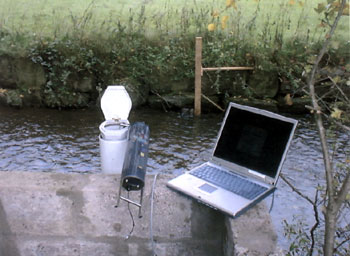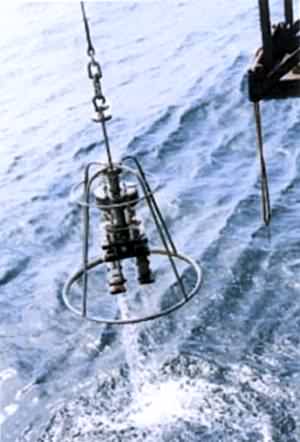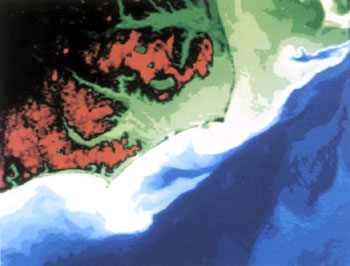| 2003 |

|
YEAR BOOK |
University of Ulster
|
Linking research with teaching - E-Learning within the School of Biological & Environmental Sciences
|
The School of Biological & Environmental Sciences, in conjunction with CampusOne (The distance learning campus of the University of Ulster - www.campusone.ulst.ac.uk ), has developed five high quality Distance Learning Postgraduate courses aimed at people working in the environmental field. The courses build directly on research expertise within the school, and offer students the opportunity to work at the cutting edge of knowledge in their selected field.
What is E-Learning?

Courses Offered
Environmental Toxicology & Pollution Monitoring
This course builds on the expertise within the Freshwater Sciences research group ( www.science.ulst.ac.uk/freshwater/ ). Advanced training in environmental toxicology, monitoring techniques and legislation will be provided. It fulfils the demand for trained personnel in the environmental regulatory agencies, in companies subject to such regulation and those involved in providing support services such as monitoring and consultancy.

Coastal Zone Management
The coastal studies research group ( www.science.ulst.ac.uk/crg/ ) examines various aspects of coastal environments, from the physical processes to the human impacts on today's coastline. The course uses the expertise of the staff to assess current practice in coastal zone management world-wide, and seeks through case studies to impart an understanding of current problems and potential solutions.

Maritime Archaeology
The Centre for Maritime Archaeology ( www.science.ulst.ac.uk/crg/cma.htm ) focuses on maritime cultural landscapes. The course introduces the concept of maritime cultural landscapes and a broad understanding of the resource environment. A range of skills and techniques will be taught which will ultimately lead to students providing a significant contribution to the pool of professional and technological skills available to support associated professionals, management, teaching and research in Ireland, Britain and further afield.
Contact: Mr Colin Breen - [email protected]
Geographic Information Systems
The GIS course builds on research expertise with our Geography research group ( www.science.ulst.ac.uk/geog/resarea.htm ). GIS is an important growth area which encompasses aspects of geography and information technology and which has relevance to a wide employment base; the course is equally suitable for those interested in studying this subject for the first time or for those with prior experience seeking to gain a formal qualification. Material covered includes data models, acquisition and management of data, spatial analysis and modelling, image analysis/remote sensing, database technology, GIS design and implementation issues, and GIS programming.
Contact: Dr Sally Cook - [email protected]

Environmental Management
This course offers training in environmental impact assessment, biodiversity management and pollution monitoring. It combines expertise from our Terrestrial ( http://www.science.ulst.ac.uk/nnru/ac.html ) ( http://www.science.ulst.ac.uk/nics/ ), and Freshwater research groups. It is designed primarily for professionals in environmental or related areas who wish to acquire, update or develop their knowledge of environmental management skills and techniques, particularly with regard to field survey, project management and the production and assessment of environmental statements. The course is also suitable for new graduates with an environmental or biological science background.
Contact: Dr Alan Cooper - [email protected]